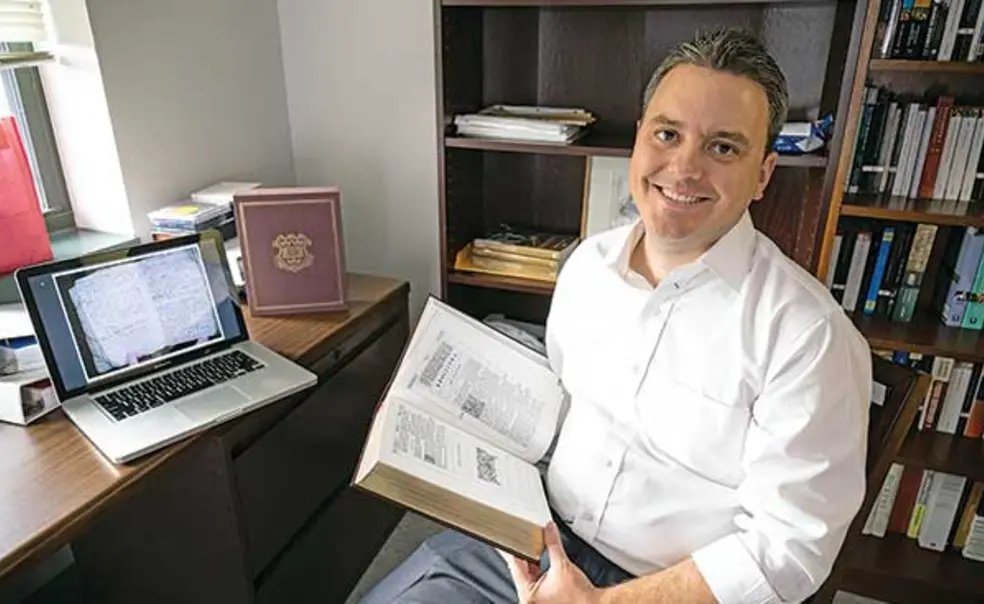In early fall, English professor Jeffrey Alan Miller ’06’s office phone at Montclair State University rang, which almost never happens. He ignored it. Soon after the ringing stopped, he received an email from the MacArthur Foundation saying they’d called to ask him to confidentially evaluate a nomination.
“I’m thinking, ‘What an honor! I wonder if I can put this on my CV.’” Imagine his surprise when a MacArthur representative called back and dropped the ruse: Miller was one of the 2019 “genius grant” winners — a $625,000 no-strings-attached stipend paid out over five years. “My first reaction was to ask them if it was a prank,” he says.
Miller made headlines worldwide in 2015 for his discovery concerning a 17th-century notebook in the archives at Cambridge University. The notebook belonged to Samuel Ward, one of about four dozen translators whose work culminated in the King James Bible. Miller dates the notebook to about 1604; it shows Ward’s work as he puzzled out translations, and it is the only known portion of the Bible written by one of the translators. Further, Ward’s writings suggest that his work was a slice of subdivided labor — not a robust collaborative effort, as had been previously believed. One expert told The New York Times that the finding was “perhaps the most significant archival find relating to the King James Bible in decades.”
Miller is working to finish a book on his findings, which will be accessible to the lay reader. Another project includes a book on John Milton, whom he describes as “the beating heart of everything I do.”
The MacArthur website says Miller was chosen, in part, because of his ability to “[shed] light on the emergence of key ideas about the role of faith in daily life and government among Reformation and Renaissance scholars.”
Miller, who did his graduate work as a Rhodes Scholar at Oxford University, says he owes much to Princeton literature professor Nigel Smith for granting him — as an undergrad — entry into his graduate seminar on Milton. “He also pushed me to do a Rhodes scholarship,” Miller says. “I thought, ‘Give me a break! People like me don’t get those things.’”
Smith is anything but surprised by his former student’s win. “[Miller has] the uncanny ability to see into familiar literary material and to remake our understanding of it significantly and profoundly,” he says. “It is a rare gift. This is what has persuaded the MacArthur judges.”












No responses yet